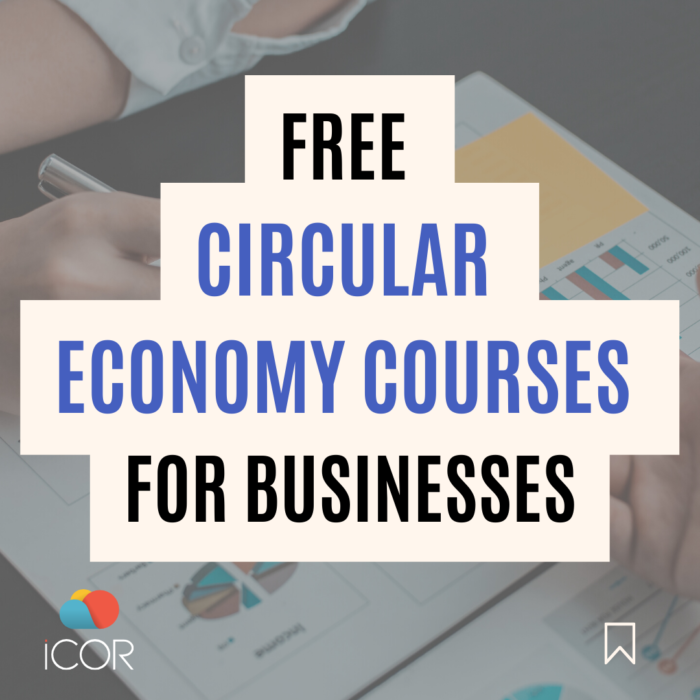🔻 Top CIRCULAR ECONOMY (2024) courses for businesses ☘️
Some good circular economy courses you should consider to cover the basics.
Understanding Circular Economy
What is circular economy?
A circular economy is an economic and industrial system designed to maximize the use of resources, minimize waste, and reduce environmental impact. It is a departure from the traditional linear economy, which follows a “take-make-dispose” pattern. In a circular economy, resources and products are kept in circulation for as long as possible, and their value is preserved throughout their lifecycle.
Principles for Circular Economy
Benefits of Circular Economy
- Resource Conservation: Circular economy principles significantly reduce the consumption of finite resources, such as minerals and fossil fuels, leading to lower environmental degradation and resource depletion.
- Waste Reduction: By minimizing waste and encouraging recycling, the circular economy helps to divert materials from landfills and incineration, reducing pollution and pressure on waste management systems.
- Lower Environmental Impact: Sustainable product design and efficient resource use reduce the carbon footprint and environmental impact of production, resulting in a healthier planet.
- Economic Growth: Circular economy practices create new economic opportunities in areas such as repair services, remanufacturing, and recycling industries, stimulating economic growth and job creation.
- Resilience and Security: A circular economy reduces dependency on external resource supplies, making economies more resilient to supply chain disruptions and resource price fluctuations.
- Innovation and Sustainable Business Models: Companies that embrace circular economy principles often discover innovative solutions for reducing costs and environmental impact, leading to the development of more sustainable business models.
- Enhanced Product Quality and Longevity: Products designed for circularity tend to be of higher quality and durability, offering consumers better value for their money.
- Consumer Engagement: Circular economy principles often encourage consumers to be more mindful of their consumption, promoting sustainable and responsible choices.
Top FREE Circular Economy Courses
Circular Economy Course 1: Sustainable Construction in a Circular Economy by Parsons School of Design
This course will teach you how to design and build sustainable buildings using circular economy principles.
__
Circular Economy Course 2: Circular Economy by TU Delft
This course will introduce you to the basics of circular economy and how it can help reduce waste and promote sustainable development.
__
Circular Economy Course 3: Organisations, Environmental Management, and Innovation by The Open University
This one is a must for anyone passionate about sustainable architecture.
__
Circular Economy Course 4: Business Models For Sustainability by Copenhagen Business School
If you’re interested in the intersection of business and sustainability, this course is perfect for you.
__
Circular Economy Course 5: Waste Management and Critical Raw Materials by TU Delft
This course is designed for professionals working in waste management or anyone interested in tackling the global waste crisis.





